Moving Kinship Surrey
Moving Kinship Surrey
Moving Kinship creates dance with and for individuals, families and communities
Photo: Julia Testa
Dancers: Takeshi Matsumoto, Maria Olga Palliani, Luke Birch, Rudzani Moleya, Aneta Zwierzynska
Moving Kinship is a transdisciplinary project that takes place in UK and international participatory ecologies hubs located in arts centres, museums, hospitals and grass roots organisations. Created by Beatrice Allegranti in 2016, the project involves making bespoke and trauma-informed live and digital performances with and for audiences as a way of engaging ethically with the many complex and intersecting challenges we are confronted with in our troubled world. Working across forms (choreographic, film, conversational, illustration, writing, capoeira, music), the aim of the bespoke hubs is to activate modes of collaboration, collectivity and nurture cultures of multiple belongings and care. The hubs give rise to micro-performances as well as full scale artistic works. To date, Beatrice and her team have worked intergenerationally with families affected by rare early onset dementia, youth environmental activists, LGBTQI+ communities and activists, as well as artists and scientists in the UK, Norway, the Netherlands and Japan.
Photo: Julia Testa Dancers: Takeshi Matsumoto & Maria Olga Palliani
Supported by Arts Council England, Surrey Arts/Dance 21 and Public Health, the participatory project is led by Beatrice Allegranti Company and in partnership with public and grass roots organisations across the arts, health and science sectors and academic partners.
This page documents our Moving Kinship hub in a Surrey care home for people living with dementia.
Photo: Julia Testa
Dancers: Takeshi Matsumoto, Maria Olga Palliani, Luke Birch, Rudzani Moleya, Aneta Zwierzynska
The Surrey edition of our Moving Kinship Hub included a collaboration with comic illustrator Neil Max Emmanuel. Alongside the personalised illustrations Beatrice worked individually with care home residents to co-create poems expressing their personal experiences of living with dementia and their cherished embodied memories. Extracts from these poems were spoken during the dance performance, and will appear in a forthcoming dementia comic book illustrated by Neil Max Emmanuel.
Do you like dancing?
we were more into action
something doesn’t matter what
Yes, yes, yes,
I am the last person
My family
Across the world
I’m the last one
Where am I going to go?
I am the last one
I have no family, at all
only me
I am the last
Starling.
I was born in Malawi
I was the first white child born in one particular chief’s territory
I was adopted into his tribe
Every year they used to come
You could hear them before you saw them
They’d come on my birthday every year
wouldn’t it be extraordinary if they were to just walk in now?’
Photos: Julia Testa
The direct outcomes of the sessions you offer at your Moving Kinship hubs are improved wellbeing for participants, creative support for people living with young onset dementia and their families, improved family communication and feelings of empowerment for all involved. The Moving Kinship Hub offers a means to provide real support to people with young onset dementia and their families and carers, allowing them to see their own stories and then engage as families.
Daniel Butler
Senior Principal, Public Health
Funding
Arts Council England, Public Health; Alexandra Palace, Surrey Arts/Dance 21.
Partnerships
Alexandra Palace; Merton Arts Space; Merton Council; Public Health (Merton); Dementia Action Alliance; Dementia Pathfinders; St George’s NHS; Created Out of Mind at Wellcome; University of Roehampton; Bergen International Festival; Red Cross Bergen; University of Bergen; South West Yorkshire NHS; LGBTQ Music Study Group; Yorkshire Dance, Surrey Arts, Dance 21; Queer Britain Museum.
Publications
Research publications emerging from the Moving Kinship project:
Allegranti, B. (2019) ‘Moving Kinship: Between Choreography, Performance and the More-Than-Human’. In Prickett, S, and Thomas, H. The Routledge Companion to Dance Studies. London: Routledge.
Allegranti, B. (2020) ‘Dancing Activism: Choreographing the Material With/in Dementia. In Chaiklin, S. and Wengrower, H. Dance Movement Therapy and the Creative Process: International perspectives. New York: Routledge.
Allegranti, B. (2016) ‘Dementia and Embodied Psychotherapy’. Therapy Today Magazine. BACP Publication. Cover story.
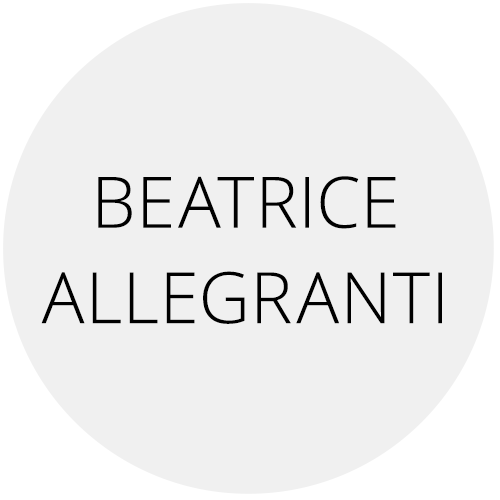



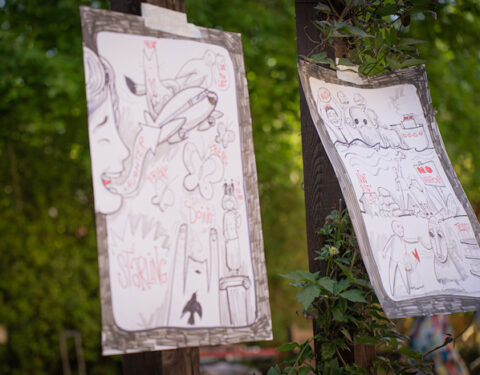
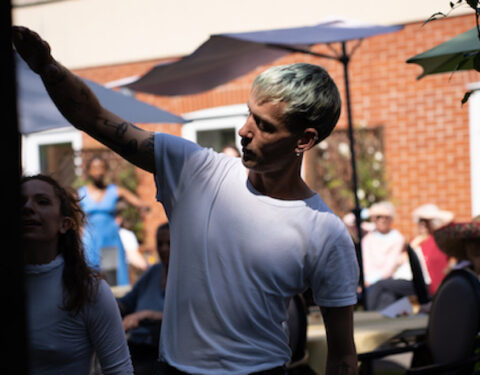
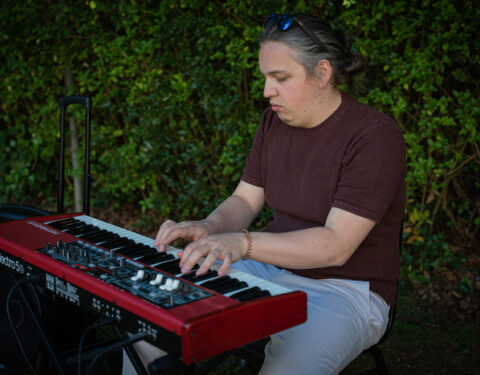
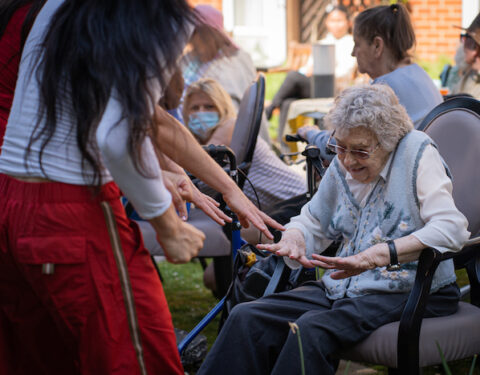
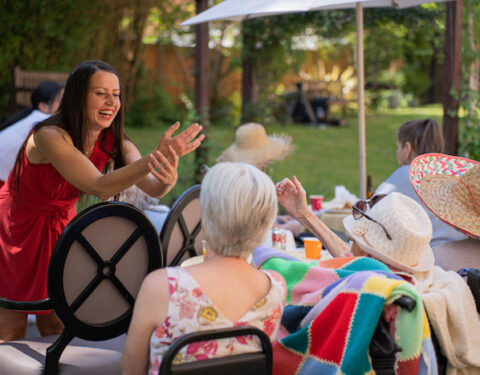
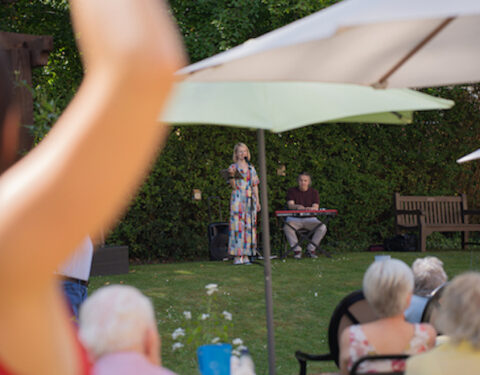
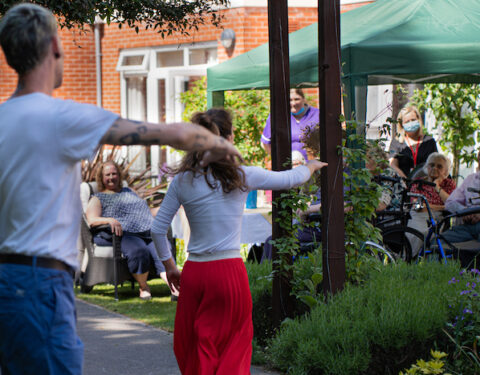
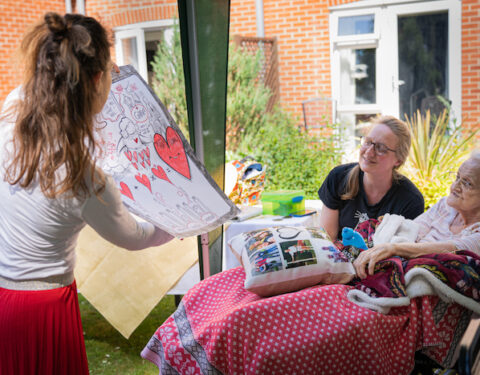
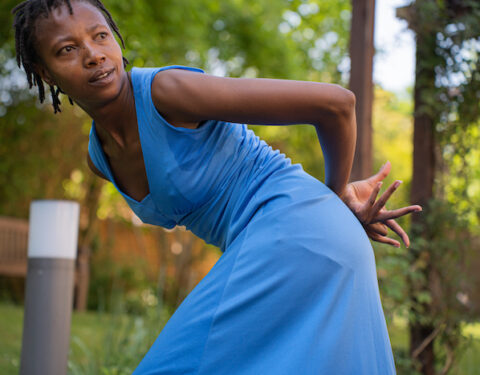
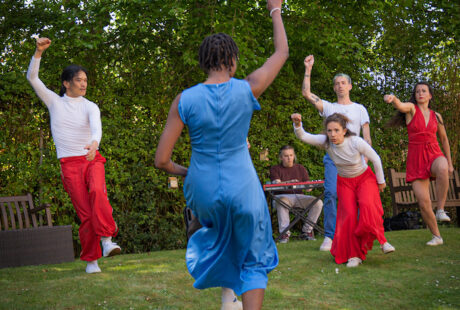
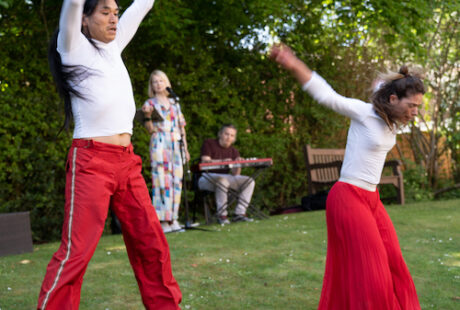
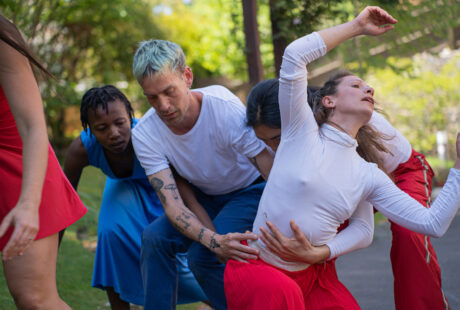
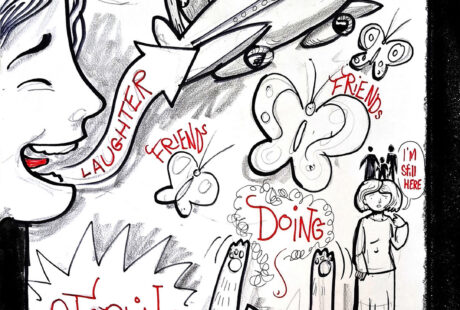
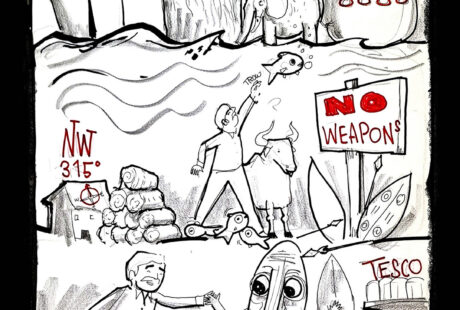
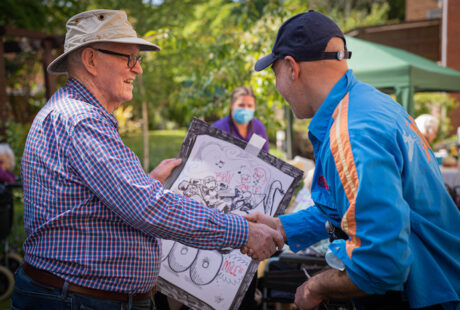
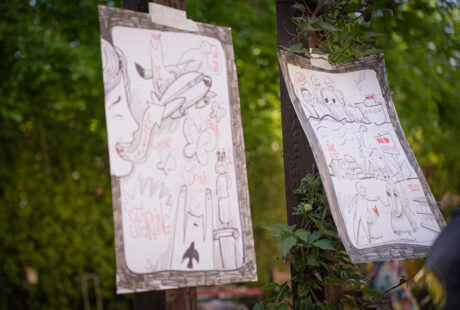
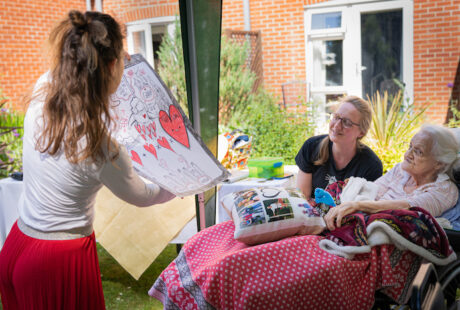
Submit a Comment